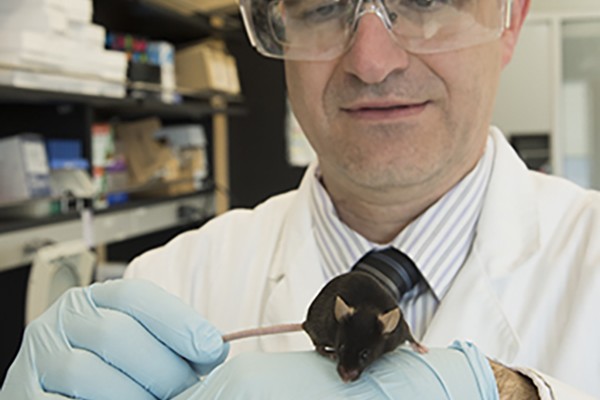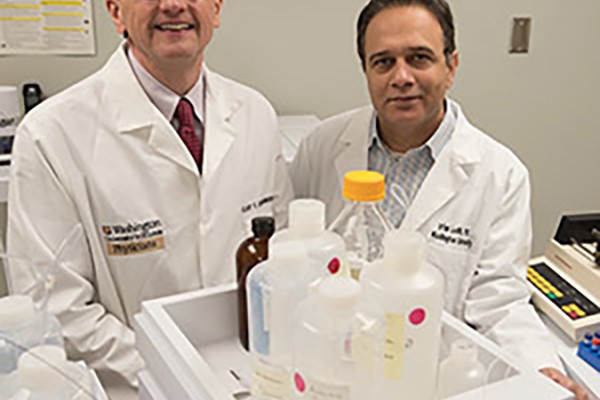Diabetes drug may reduce heart attack risk in HIV patients
A diabetes drug may have benefits beyond lower blood sugar in patients with HIV. New research from the laboratory of Kevin E. Yarasheski, PhD, suggests the drug may prevent cardiovascular problems because it works to reduce inflammation that is linked to heart disease and stroke in these patients. The drug both improved metabolism and reduced inflammation in HIV-positive adults on antiretroviral therapy.
Vitamin D prevents diabetes and clogged arteries in mice
A deficiency of vitamin D has been linked to Type 2 diabetes and heart disease, two illnesses that commonly occur together and are the most common cause of illness and death in Western countries. Now, new research in mice led by the School of Medicine’s Carlos Bernal-Mizrachi suggests vitamin D plays a major role in preventing the inflammation that leads to Type 2 diabetes and atherosclerosis.
Targeting fatty acids may be treatment strategy for arthritis, leukemia
Enzymes linked to diabetes and obesity appear to play key roles in arthritis and leukemia, potentially opening up new avenues for treating these diverse diseases, according to researchers Clay Semenkovich, MD, (left) and Irfan Lodhi, PhD, at the School of Medicine.
Muscle relaxant may be viable treatment for rare form of diabetes
A research team led by Washington University endocrinologist Fumihiko Urano, MD, PhD, (right) and first author Simin Lu, PhD student, (left) has discovered that a commonly prescribed muscle relaxant may be an effective treatment for Wolfram syndrome, a rare but devastating form of diabetes.
Obituary: Mary Langston Parker, associate professor emeritus of medicine, 89
Mary Langston Parker, MD, a dedicated physician, researcher and director of student health services at Washington University, died Saturday, May 24, 2014, from complications of Alzheimer’s disease. Parker was an associate professor emeritus of preventive medicine and a mother of five.
Study compares long-term effectiveness of diabetes drugs
Researchers at the School of Medicine are comparing the long-term benefits and risks of four widely used diabetes drugs given in combination with metformin, the most commonly prescribed medication for treating type 2 diabetes. The principal investigator at the St. Louis clinical site is Janet B. McGill, MD, who is pictured discussing options with study patient Michael Gingrich.
Obituary: David M. Kipnis, MD, Distinguished University Professor Emeritus of Medicine, 86
David M. Kipnis, MD, Distinguished University Professor Emeritus of Medicine at Washington University School of Medicine in St. Louis, died at his home Wednesday, Feb. 5, 2014, after a long illness. He was 86.
Obituary: William H. Daughaday, former director of metabolism, 95
William H. Daughaday, MD, a leading diabetes researcher, world authority on growth hormone, and the former director of the metabolism division at Washington University School of Medicine in St. Louis, died after a long illness Friday, May 3, 2013, in Milwaukee. He was 95.
Cryer receives American Diabetes Association’s Renold Award
Philip E. Cryer, MD, will receive the American Diabetes Association’s Albert Renold Award at the organization’s 70th Scientific Sessions in Orlando, Fla. The Albert Renold Award is presented to an individual whose career is distinguished by outstanding achievements in the training of diabetes research scientists and the facilitation of diabetes research.


